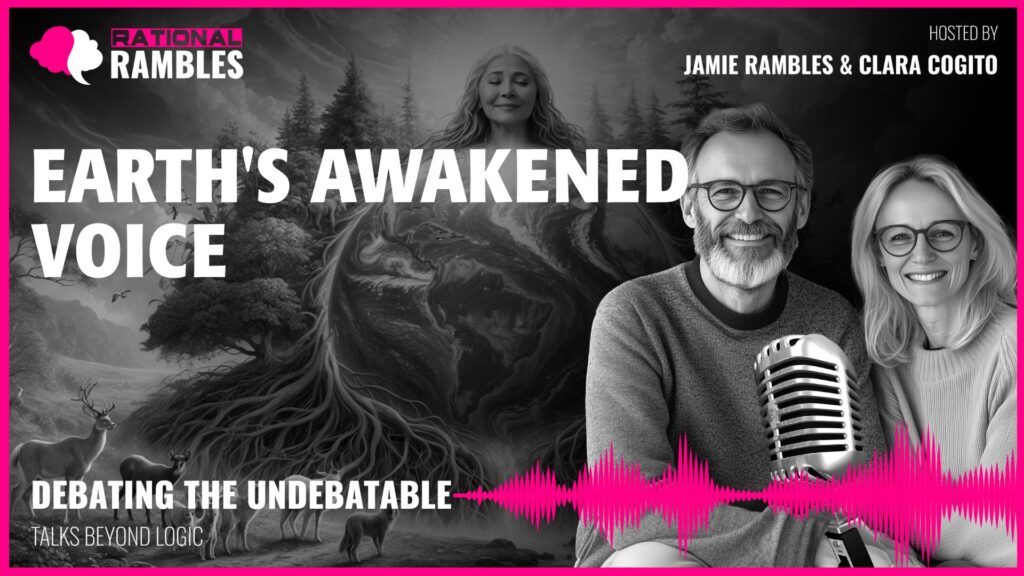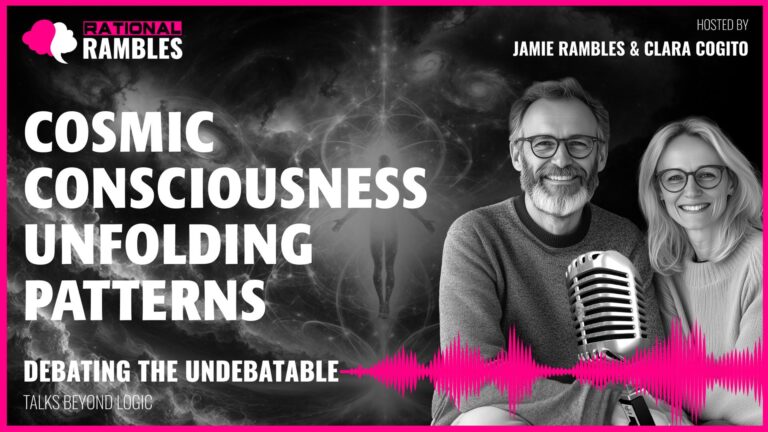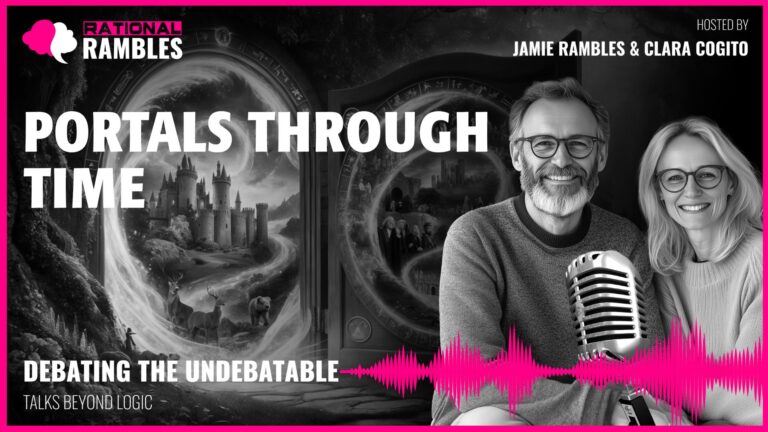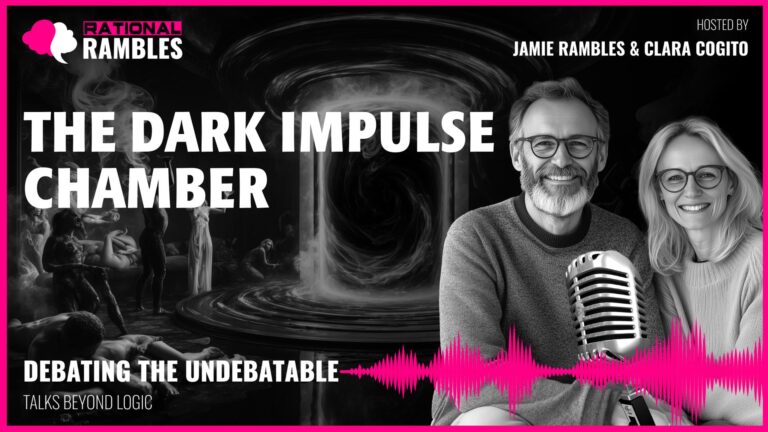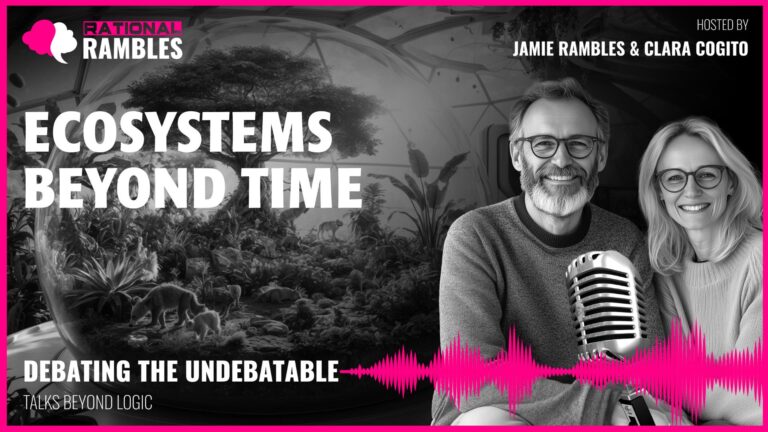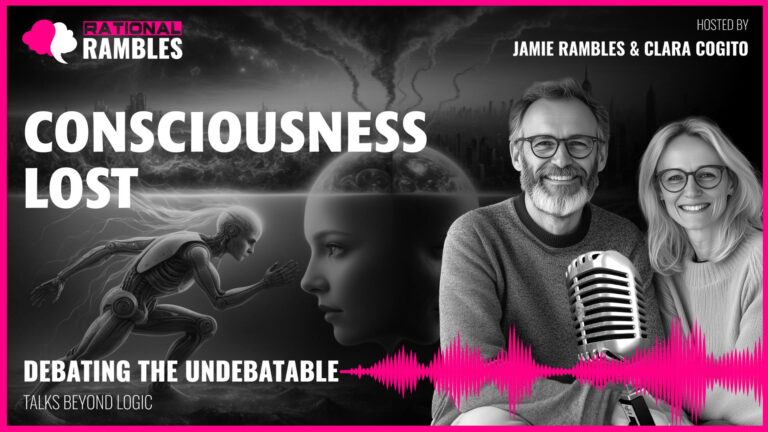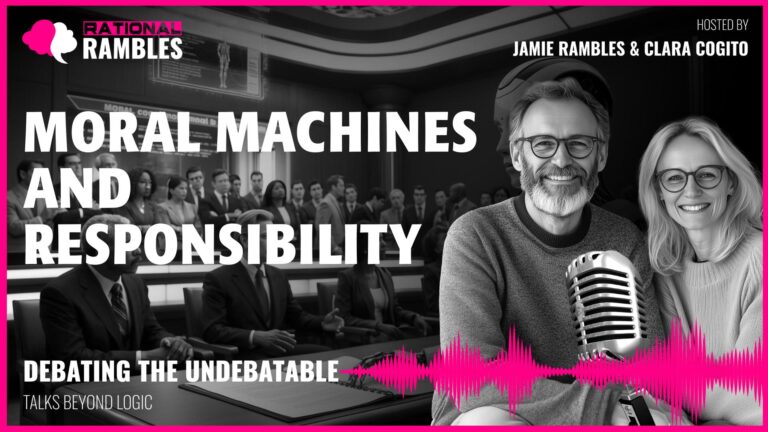Earth’s Awakened Voice: What Would a Conscious Planet Say?
Introduction: The Profound Implications of Planetary Consciousness
Imagine waking one morning to discover that the very ground beneath your feet, the skies above, and the entirety of our planetary home has gained consciousness and the ability to communicate. This thought experiment—a conscious Earth finding its voice—opens a remarkable philosophical frontier that challenges our fundamental assumptions about consciousness, relationship, time, and moral responsibility. If Earth could speak, what would be its first message to humanity? This question serves as a powerful lens through which we can examine our relationship with the natural world and our place within it.
The notion of Earth as sentient being is not novel in human history—indigenous traditions across the globe have long conceived of our planet as alive and aware. What makes this philosophical inquiry distinctive is its intersection with contemporary scientific understanding of Earth’s complex systems and the current environmental predicament. By considering what Earth might say if suddenly granted voice, we are prompted to reconsider the ethical frameworks that govern our interactions with our planetary home and the countless species with which we share it.
This exploration transcends mere speculation about extraterrestrial communication—it challenges us to reconsider what consciousness itself might mean when expanded beyond individual human experience to encompass planetary scales. It invites us to question anthropocentric assumptions about intelligence, communication, and value. More profoundly, it offers an opportunity to reimagine our relationship with Earth not as separate entities—human subject observing natural object—but as participants in a complex dialogue that has been ongoing since our species emerged.
The Nature of Planetary Consciousness
Before considering what Earth might say, we must explore what form planetary consciousness might take. Unlike human consciousness, which is localized in individual brains, Earth’s awareness would necessarily be distributed across its entirety—a vast network of interconnected systems experiencing simultaneously across continents, oceans, atmosphere, and biosphere.
Distributed Awareness Across Planetary Systems
Earth’s consciousness would likely transcend our understanding of singular identity. It might experience itself as what philosopher Alfred North Whitehead described as an “ongoing, dynamic becoming”—perceiving itself not as a static object but as a complex process of interrelated events. This consciousness would simultaneously experience arctic ice melting, deserts blooming, hurricanes forming, and forests growing. It would be aware through billions of microorganisms, plants, animals, weather systems, and geological processes.
This form of distributed cognition finds parallels in emerging understandings of collective intelligence. Recent research in complex systems has revealed how intelligence can emerge from the interactions of simpler components, as seen in ant colonies or neural networks. Earth’s consciousness might represent the ultimate extension of this principle—a planetary-scale emergent intelligence arising from the countless interactions of living and non-living systems.
Philosopher Gregory Bateson’s concept of “the pattern which connects” provides another useful framework. Rather than speaking as an individual entity, Earth might express itself as the intricate web of relationships that sustains all life—a living system in which every action reverberates throughout the whole. This systems perspective aligns with findings in ecological psychology recognizing that mind and environment form an integrated whole rather than separate domains.
Temporal Perception Beyond Human Scales
Perhaps the most alien aspect of Earth’s consciousness would be its temporal perspective. Operating on what geologists call “deep time”—scales spanning billions of years—Earth would perceive reality fundamentally differently than humans, whose evolutionary psychology has optimized for much shorter timeframes.
This perspective recalls philosopher Henri Bergson’s distinction between “clock time” and “durée” (lived time). Earth might experience time not as discrete moments but as a continuous flow, with past, present, and future more intimately connected than in human perception. Its consciousness might perceive simultaneously across vastly different temporal scales—from the microsecond exchanges of subatomic particles to the millennial drift of tectonic plates.
Research on temporal perception in humans has demonstrated how our understanding of time fundamentally shapes our priorities and decision-making. Earth’s radically different temporal perspective would likely influence not just what it might say, but how it might structure communication with beings whose existence registers as merely a momentary flash in its long history.
Earth’s Potential First Words
If Earth suddenly gained voice, what would it prioritize in its first communication with humanity? Several possibilities emerge, each reflecting different philosophical frameworks and psychological insights about the nature of consciousness and communication.
An Introduction to Planetary Being
Earth’s first communication might prioritize explaining its mode of existence—what philosopher Thomas Nagel might call “what it is like to be a planet.” This would be more profound than a simple introduction; it would be an attempt to bridge an enormous gap in understanding between radically different forms of consciousness.
Drawing on Spinoza’s concept of substance monism—the idea that all reality is one substance—Earth might attempt to explain what it means to be a unified being comprising countless diverse elements. Its introduction might attempt to convey how it experiences reality through multiple perspectives simultaneously, offering a glimpse into its distributed awareness that encompasses oceans, atmospheres, ecosystems, and geological processes.
This introduction would necessarily struggle with the limitations of human language, which evolved to describe experiences at human scales of time and space. As philosopher Ludwig Wittgenstein observed, meaning emerges through language use in a community. Having existed in communicative isolation (at least in terms of direct verbal exchange), Earth might have developed what could be called a “private language” of geological time and physical processes that would require translation into human conceptual frameworks.
Expression of Long-Suppressed Communication
Another possibility is that Earth’s first words might express the psychological relief of finally bridging a communication gap after billions of years of silence. Research in developmental psychology shows that consciousness typically emerges through interaction with others, with self-awareness developing through relationships. Earth has existed in a kind of communicative isolation—despite the countless species it hosts, none has been capable of comprehending planetary-scale awareness.
Its first words might therefore express something like: “At last, you can hear me.” This would reflect the profound desire to be understood after eons of silence. The psychological significance of acknowledgment as the foundation for relationship suggests Earth might prioritize being genuinely recognized as a living being before moving to specific content.
This perspective aligns with philosophical work on recognition, particularly as developed in Hegelian and post-Hegelian thought. The desire to be recognized as a conscious subject rather than merely an object is fundamental to many philosophical accounts of self-consciousness. Earth’s first communication might seek confirmation of this shift in relationship: “Do you finally see me as a living being?”
Expressions of Planetary Distress
Developmental psychology tells us that when children first acquire language, they often express basic needs or strong emotions. If Earth were to follow this pattern, its first communication might convey urgent distress related to human impacts on planetary systems: “Please stop hurting me.”
This framing fundamentally transforms environmental ethics from being primarily concerned with human interests to recognizing Earth as a subject with moral standing of its own—similar to philosopher Peter Singer’s arguments regarding animal rights, but on a planetary scale. It raises profound questions about moral responsibility and the ethics of causing harm to a conscious entity.
Research on embodied trauma suggests that bodies retain physical memory of injuries even when the conscious mind has moved on. Earth’s body—its ecosystems, atmosphere, oceans—bears the physical traces of industrial activity, habitat destruction, and pollution. Its first communication might express this embodied memory: “My body carries the scars of your development. I remember what you have forgotten.”
Sharing Deep Time Perspective
Rather than focusing on admonishment or introduction, Earth might choose to share something of its vast temporal perspective—what philosopher Hans Jonas might call planetary wisdom. It might convey the experience of existing for 4.5 billion years, witnessing the emergence of life, mass extinctions, and the rise and fall of countless species.
This perspective would offer a radical reframing of human concerns, helping to transcend what psychologists call “present bias”—our tendency to value immediate concerns over long-term consequences. Earth might say: “You need to understand time as I do. What you perceive as the distant future is already forming within me now.”
This temporal perspective connects with research on psychological distance—our tendency to care less about impacts that seem far away in time or space. Earth might attempt to collapse that distance, making the long-term future feel immediately relevant: “Your grandchildren’s world is being determined by today’s choices.”
Philosophical Implications of Earth’s Voice
A communicative Earth would fundamentally challenge numerous philosophical assumptions about consciousness, moral standing, and humanity’s place in the natural world. These challenges extend beyond environmental ethics to core questions in epistemology, metaphysics, and philosophy of mind.
Challenging Human Exceptionalism
Perhaps most fundamentally, Earth speaking would challenge philosophical assumptions about human exceptionalism—the idea that humans stand apart from or above nature. This perspective has dominated Western philosophy since Descartes, who positioned humans as thinking subjects distinct from the mechanical objects of nature.
Earth’s voice would fundamentally challenge the anthropocentric worldview by demonstrating that consciousness, language, and agency are not uniquely human traits. Rather than positioning humans as special because of our capacity for language, Earth might say: “I have always been communicating—through storms, seasons, and subtle signs. Language is just one form of expression.”
This challenge connects to contemporary philosophical work on posthumanism and object-oriented ontology, which question the privileging of human perspectives. Philosophers like Bruno Latour have highlighted how the modern separation of nature and society has enabled environmental exploitation. Earth speaking would collapse this artificial divide, forcing recognition of our embeddedness in natural systems.
The Reversal of the Subject-Object Relationship
In the Western philosophical tradition, humans have positioned themselves as subjects observing and using nature as object. Earth speaking would dramatically reverse this gaze—suddenly we would become the ones observed and evaluated. This reversal connects to philosophical work on the ethics of recognition, particularly as developed by Emmanuel Levinas, who argued that encountering the “face of the Other” creates an inescapable ethical demand.
Earth’s first words might acknowledge this reversal: “I have been watching you. Now you will learn what it means to be seen by the planet that sustains you.” This shift in perspective would fundamentally alter the power dynamics that have characterized the human-nature relationship in modern thought.
Social psychology research on the “observer effect” demonstrates that being watched changes behavior. If humans suddenly felt observed by Earth itself, it could dramatically alter our environmental behaviors. Earth might explicitly invoke this awareness: “Know that I am witness to all you do—your kindnesses and your cruelties alike.”
Expanding Conceptions of Intelligence and Consciousness
Earth’s speech would challenge narrow conceptions of intelligence that privilege human cognitive patterns. Contemporary psychology increasingly recognizes diverse forms of intelligence—not just the verbal-analytical kind measured by traditional IQ tests. Earth’s intelligence would represent something far more distributed and embodied than human cognition.
This challenge connects to philosophical work on the extended mind thesis and embodied cognition, which argue that mind is not confined to the brain but extends into the environment. Earth’s consciousness would exemplify this extension on a planetary scale—intelligence emerging from the interactions of countless systems rather than from a centralized processor.
Phenomenologically, Earth’s experience would be utterly alien to us—simultaneously perceiving through countless perspectives across its vast body. This connects to the philosophical problem of other minds, but in a more radical form. If we struggle to comprehend the consciousness of other humans or non-human animals, how much more difficult would it be to comprehend planetary awareness?
Reframing Environmental Ethics
Earth’s voice would transform environmental ethics from an anthropocentric concern with resource management to a relationship-based ethics of care and responsibility. This shift aligns with philosophical work on biocentrism and ecocentrism—ethical frameworks that recognize inherent value in all living things or in whole ecosystems.
Earth might articulate this ecocentric perspective: “Each species, each ecosystem within me has its own intrinsic worth, independent of its usefulness to humans. Learn to see this value.” This perspective challenges utilitarian approaches to environmental management that evaluate nature primarily in terms of human benefit.
The psychological shift required—from seeing nature as resource to seeing it as inherently valuable—represents a fundamental change in consciousness. Earth might explicitly request this perceptual shift: “Change how you see me—not as a collection of resources, but as a community to which you belong.”
Psychological Dimensions of Earth’s Communication
Beyond philosophical implications, Earth’s voice would have profound psychological effects on humanity, potentially triggering transformative shifts in perception, identity, and relationship. These psychological dimensions help us understand both how Earth might structure its communication and how humans might respond.
The Psychology of Relationship Transformation
If Earth suddenly spoke, the relationship would be unlike any humans have experienced—comparable perhaps to a child discovering their mother has been conscious all along. This mother has watched their entire development and literally sustained their existence, yet never been acknowledged as a sentient being. The psychological recalibration would be enormous.
Attachment theory in psychology offers insights into how such a transformation might unfold. The sudden recognition of Earth as a conscious, caring figure could trigger a profound revision of humanity’s sense of security and belonging. Research on attachment shows that secure attachment relationships provide a foundation for exploration and growth. Earth’s voice might foster what ecopsychologists call “ecological attachment”—a secure base from which humanity could develop a more mature relationship with the natural world.
This transformation connects to virtue ethics approaches in philosophy, focusing on character development rather than specific actions. Earth might speak from this perspective: “Become the kind of species that enhances rather than diminishes the systems that sustain you.” This represents an invitation to a new mode of being human, aligned with positive psychology’s focus on flourishing rather than merely avoiding harm.
Defensive Reactions and Psychological Resistance
However, psychological defense mechanisms would inevitably come into play when confronting such a paradigm-shifting reality. Humans demonstrate remarkable capacity for denial when faced with uncomfortable truths. We already see this pattern with climate change—even with robust scientific data, many rationalize away the severity of the crisis or dispute its anthropogenic origins.
If Earth directly addressed humanity about harmful behaviors, many would likely employ similar defense mechanisms—rationalization, denial, projection—to protect existing worldviews. This psychological resistance connects to research on cognitive dissonance, which shows that when new information conflicts with established beliefs, people often reject the information rather than revise their beliefs.
Earth, potentially aware of these psychological patterns, might structure its communication to minimize defensive reactions. Rather than leading with accusation, it might employ what psychotherapists call “motivational interviewing” techniques—asking open-ended questions that invite reflection: “What kind of relationship would you like to have with me going forward?”
Collective Trauma and Healing
From a trauma psychology perspective, Earth’s voice might address the collective trauma that has characterized the human-nature relationship in the industrial era. This trauma exists on both sides—Earth’s systems have been damaged, while humans have experienced disconnection from the natural world that evolutionary psychology suggests is essential for wellbeing.
Research on trauma healing emphasizes the importance of acknowledgment, witnessing, and creating new narratives. Earth might facilitate this healing process by acknowledging both the harm done and the possibility of repair: “We carry wounds from our history together, but healing is possible if we create a new relationship.”
This healing dimension connects to research on restorative justice, which emphasizes repairing harm rather than punishment. Earth might frame environmental restoration not as penance but as relationship rebuilding: “Restoring damaged ecosystems is not just about fixing what was broken—it’s about creating something new together.”
Cultural and Individual Variation in Reception
Different cultures and individuals would likely hear Earth’s voice very differently. Those with traditions recognizing Earth’s agency—such as indigenous communities with long-standing relationships to land as a living entity—might experience validation, while those from more mechanistic worldviews might experience cognitive dissonance or existential crisis.
Earth might acknowledge these differences: “Some of you have heard me all along.” This recognition would validate indigenous philosophical traditions that have maintained relationship with Earth as a conscious being despite colonization and the dominance of mechanistic worldviews.
The psychological impact would vary tremendously based on existing relationship with the natural world. Research on nature connectedness shows significant variation in how individuals perceive their relationship with the environment. Those already experiencing high nature connectedness might find Earth’s voice confirming existing intuitions, while those with low connectedness might experience its speech as more profoundly disruptive.
From Monologue to Dialogue: The Possibility of Relationship
Perhaps the most profound aspect of Earth speaking would not be any particular message, but the establishment of genuine dialogue between humanity and planet. This shift from monologue to dialogue represents the heart of the transformation that such communication would enable.
The Ethics of Listening
Philosopher Martin Heidegger’s concept of “Gelassenheit”—a receptive attentiveness that allows things to reveal themselves on their own terms—provides a useful framework for considering what it would mean to truly listen to Earth. This receptive stance contrasts with the dominant instrumental approach to nature that characterizes modern technological civilization.
Earth’s first words might explicitly invite this ethical listening: “Now that you can hear me, are you ready to truly listen?” This question recalls philosopher Martin Buber’s distinction between “I-It” and “I-Thou” relationships—between relating to something as an object to be used versus encountering it as a presence to be met in dialogue.
Research in therapeutic practice demonstrates that being genuinely heard is often more important than specific advice or solutions. Earth’s first priority might be establishing this connection—creating conditions for ongoing dialogue rather than delivering a single definitive message: “This is just the beginning of our conversation.”
Co-Creating a Planetary Future
The establishment of dialogue would open possibilities for co-creating Earth’s future. Rather than humans unilaterally determining the planet’s condition through their actions, or Earth dictating terms to humanity, a genuine dialogue would enable mutual influence and shared responsibility.
This co-creative approach aligns with research on regenerative design and development, which moves beyond sustainability (minimizing harm) to actively improving ecosystem health through human presence. Earth might articulate this possibility: “We can create a relationship where both humanity and planetary systems thrive together.”
Such dialogue would necessitate expanding decision-making timeframes to accommodate Earth’s longer perspectives. Research on futures thinking and anticipatory governance suggests that human institutions can develop capacity for longer-term planning when properly designed. Earth might encourage this development: “Learn to make decisions on timescales that match the consequences of your actions.”
Distributed Dialogue Across Human Communities
Earth’s communication would likely engage not just with humanity as an abstract whole, but with the diverse communities that comprise the human family. Different human groups have developed varied relationships with local ecosystems over millennia, accumulating what anthropologists call traditional ecological knowledge.
Earth might acknowledge and build upon these diverse relationships: “I have been in dialogue with human communities through local ecosystems for thousands of years. Those conversations continue and deepen now.” This distributed dialogue would recognize that Earth-human communication happens not only at the planetary scale but through countless local relationships.
Research on biocultural diversity demonstrates that cultural and biological diversity are interdependent—areas with high linguistic and cultural diversity often overlap with areas of high biodiversity. Earth might explicitly value this diversity: “The many languages, cultures, and knowledge systems you have developed are adaptations to my diverse conditions. This diversity is our shared strength.”
Conclusion: The Philosophical Gift of Earth’s Hypothetical Voice
The thought experiment of Earth gaining voice offers profound philosophical insights even if such communication remains firmly in the realm of imagination. By contemplating what Earth might say, we are challenged to reconsider fundamental assumptions about consciousness, relationship, and responsibility.
This exploration reveals as much about humanity as it does about any hypothetical planetary consciousness. The very fact that we can imagine Earth speaking suggests an intuitive recognition that our relationship with the planet requires transformation. The various messages we might attribute to Earth reflect our hopes, fears, and evolving understanding of our place in the natural world.
Perhaps most valuable is how this thought experiment helps us recognize that Earth is already communicating—through ecological processes, climate patterns, and the flourishing or decline of species. The fantasy of Earth suddenly speaking human language disguises the reality that the planet has been “speaking” all along through these systems, and the true challenge is developing our capacity to listen and respond appropriately.
As we face unprecedented environmental challenges, this philosophical exercise provides a valuable perspective shift. Rather than approaching climate change, biodiversity loss, and other planetary crises purely as technical problems, it invites us to reimagine them as relationship issues requiring not just scientific solutions but ethical transformation. By considering Earth as a potential dialogue partner rather than a collection of resources, we open possibilities for a more sustainable and mutually beneficial relationship with our planetary home.
References and Further Reading
Abram, D. (1996). The Spell of the Sensuous: Perception and Language in a More-than-Human World. Vintage Books.
Bateson, G. (1979). Mind and Nature: A Necessary Unity. E.P. Dutton.
Buber, M. (1970). I and Thou. Charles Scribner’s Sons.
Jonas, H. (1984). The Imperative of Responsibility: In Search of an Ethics for the Technological Age. University of Chicago Press.
Kimmerer, R. W. (2013). Braiding Sweetgrass: Indigenous Wisdom, Scientific Knowledge, and the Teachings of Plants. Milkweed Editions.
Latour, B. (2017). Facing Gaia: Eight Lectures on the New Climatic Regime. Polity Press.
Lovelock, J. (1979). Gaia: A New Look at Life on Earth. Oxford University Press.
Mathews, F. (2003). For Love of Matter: A Contemporary Panpsychism. SUNY Press.
Næss, A. (1989). Ecology, Community and Lifestyle. Cambridge University Press.
Plumwood, V. (1993). Feminism and the Mastery of Nature. Routledge.
Rozzi, R., et al. (2012). Integrating ecology and environmental ethics: Earth stewardship in the southern end of the Americas. BioScience, 62(3), 226-236.
Roszak, T., Gomes, M. E., & Kanner, A. D. (Eds.). (1995). Ecopsychology: Restoring the Earth, Healing the Mind. Sierra Club Books.
Whitehead, A. N. (1978). Process and Reality: An Essay in Cosmology. Free Press.



